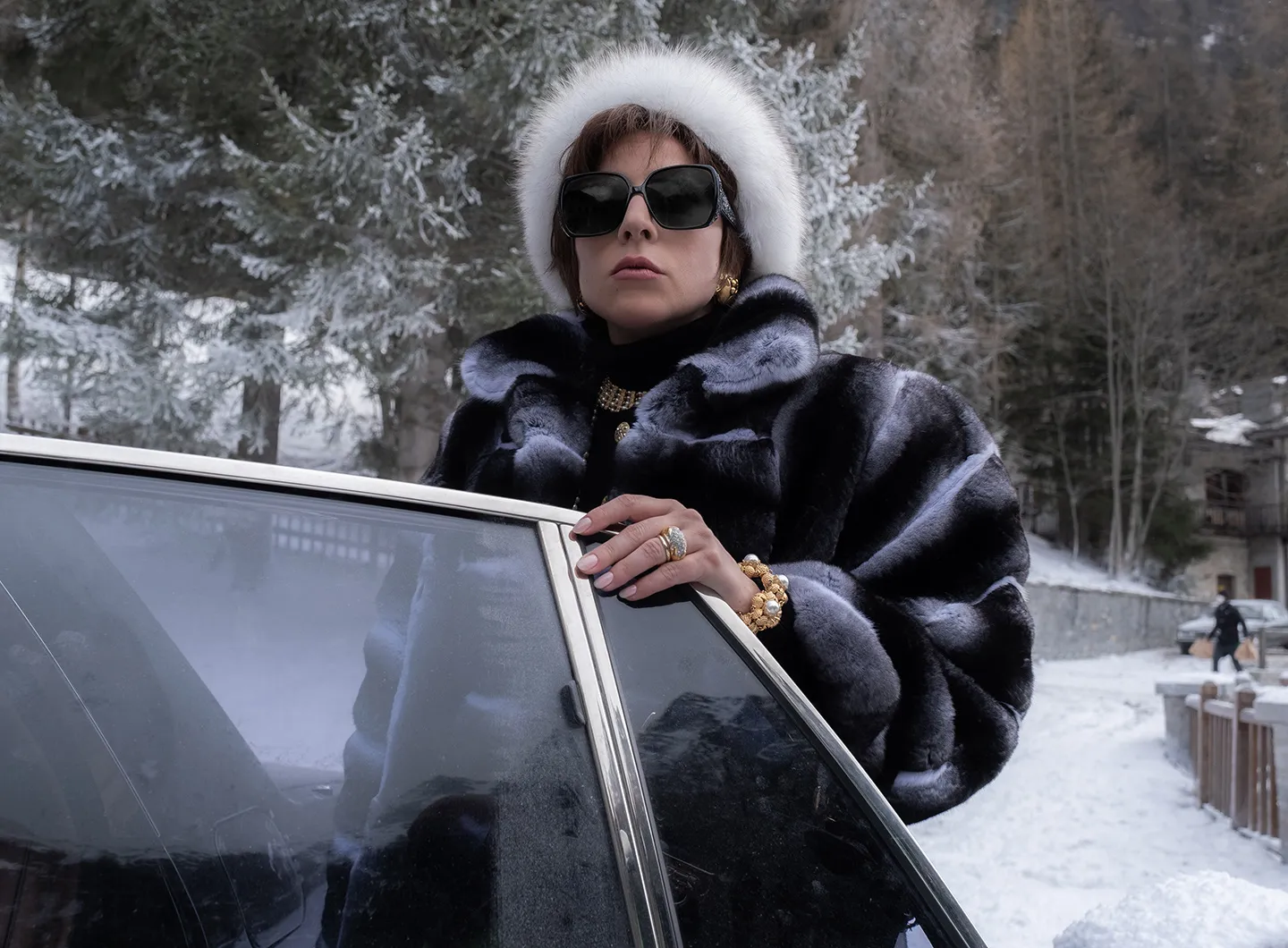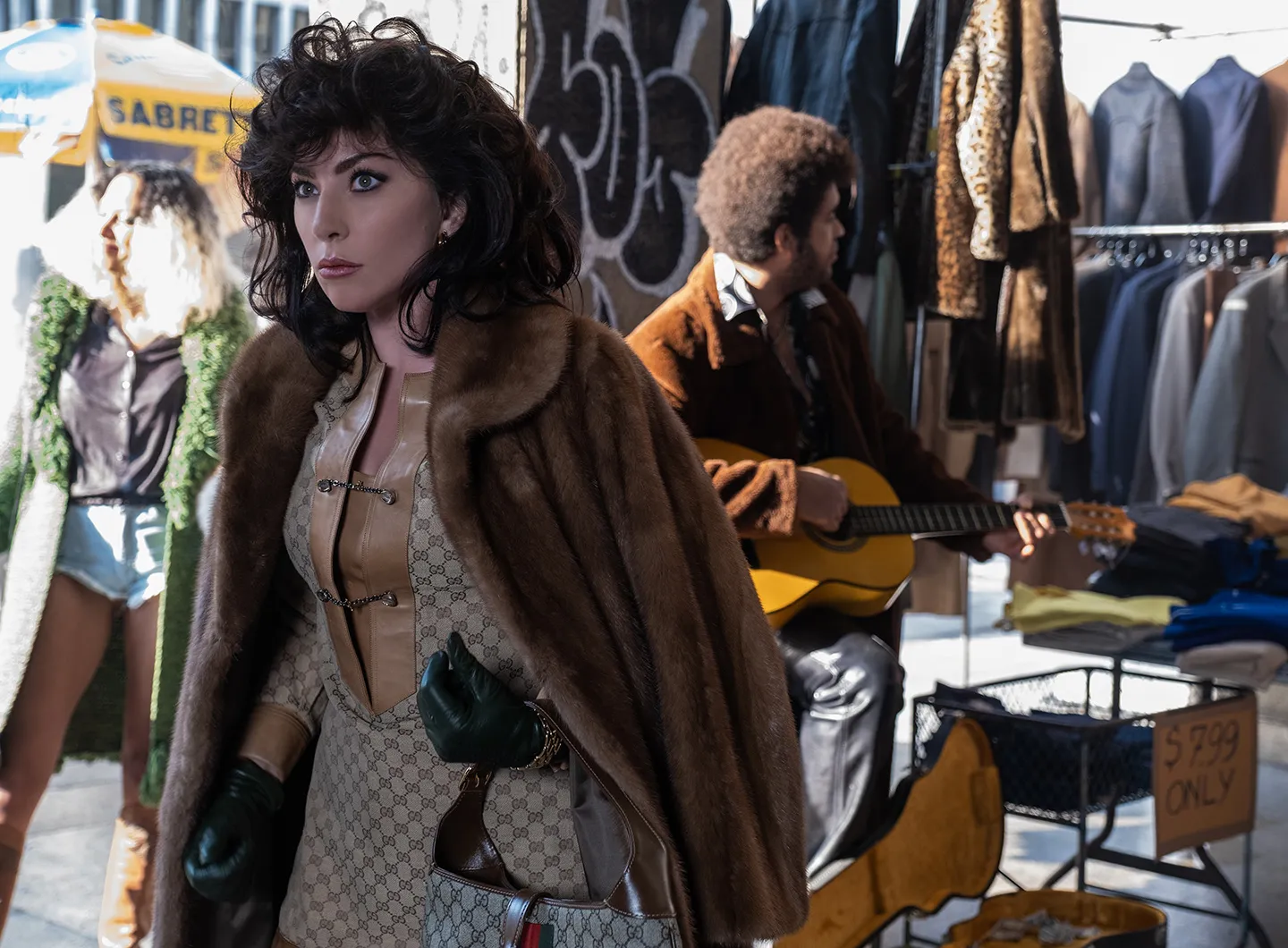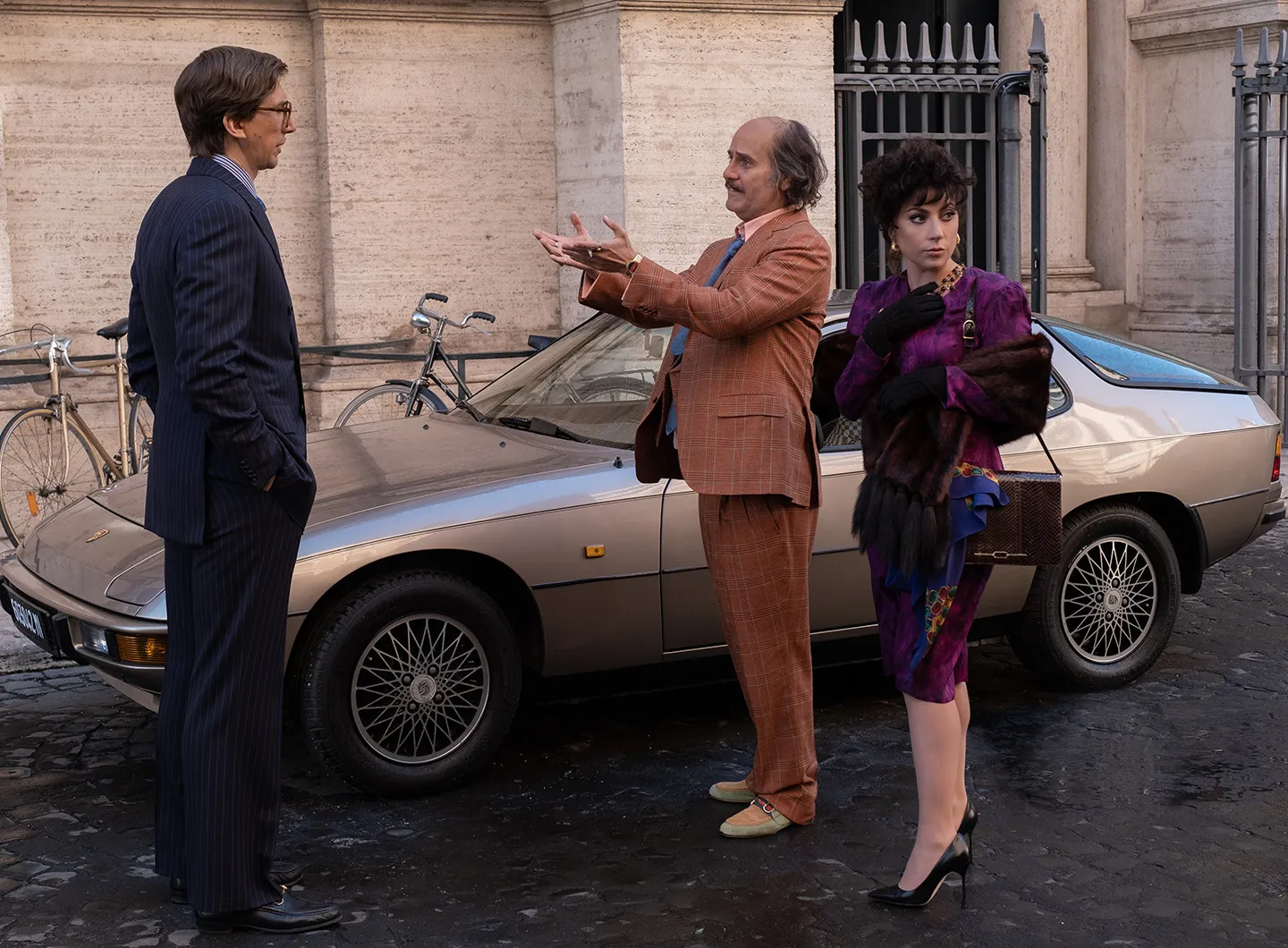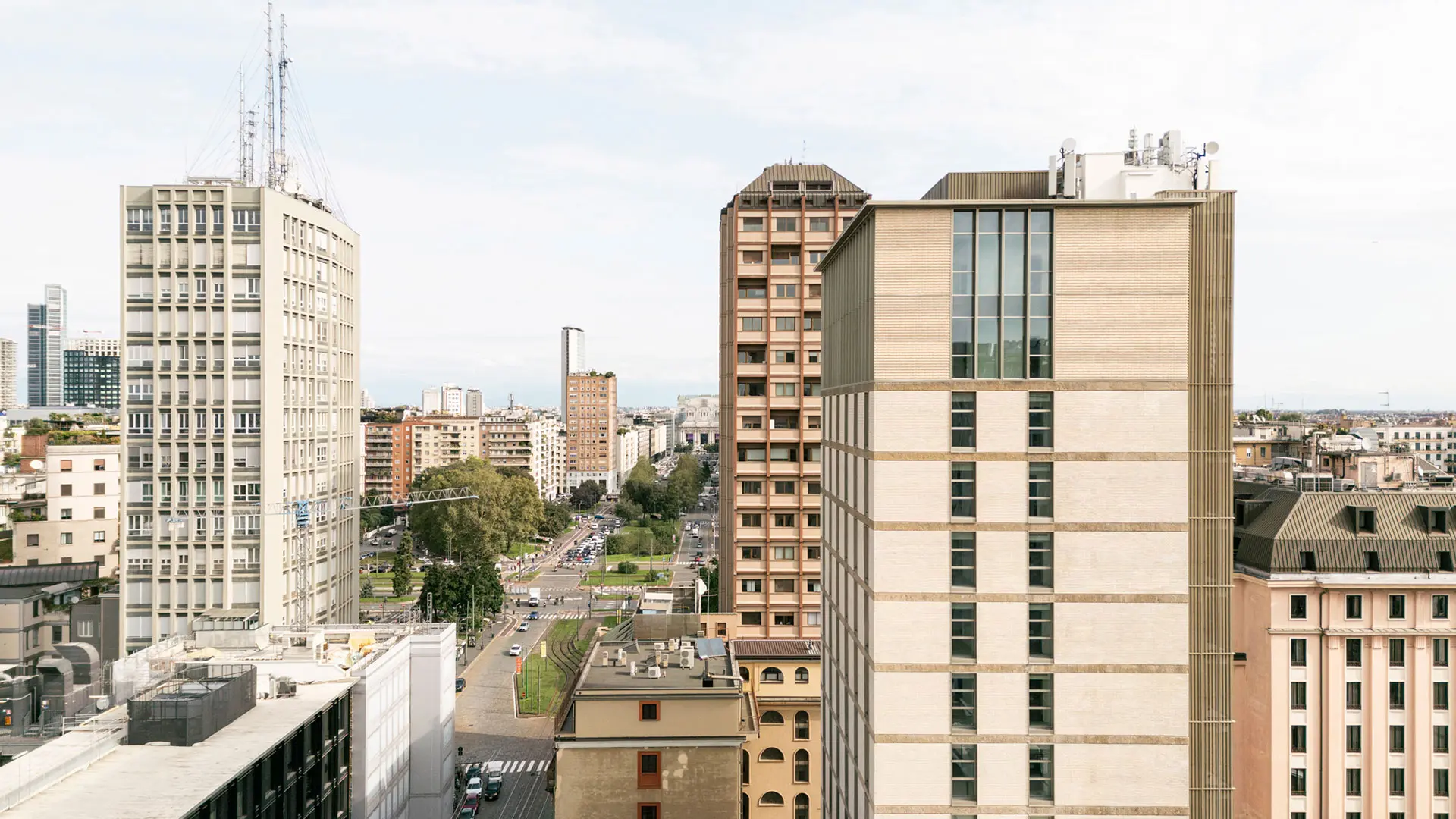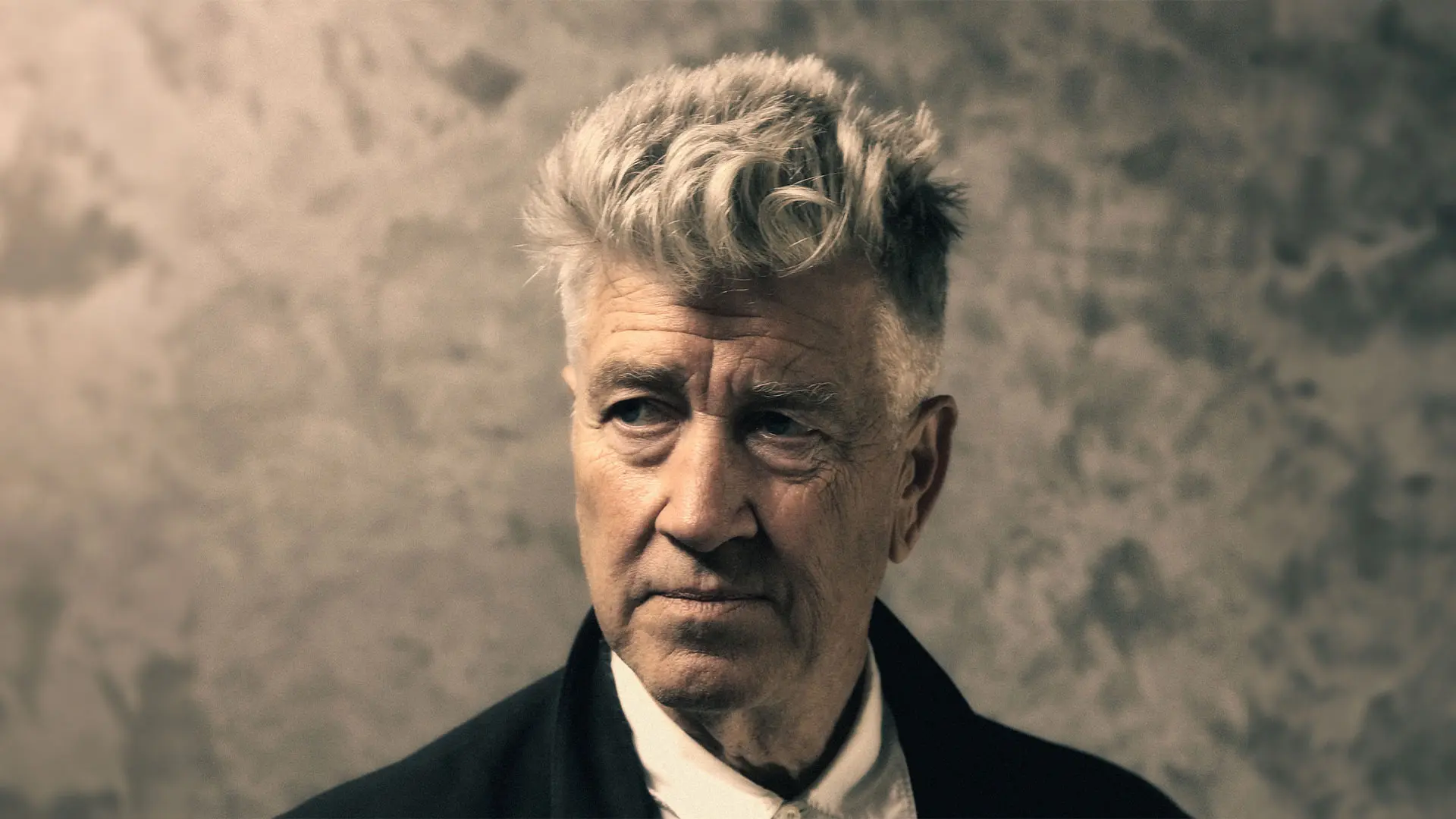In partnership with MiCodmc, a selection of establishments ripe for discovery during the 63rd edition of the Salone del Mobile.Milano, from 8th to 13th April
Fashion, drama and power: the House of Gucci’s killer cocktail
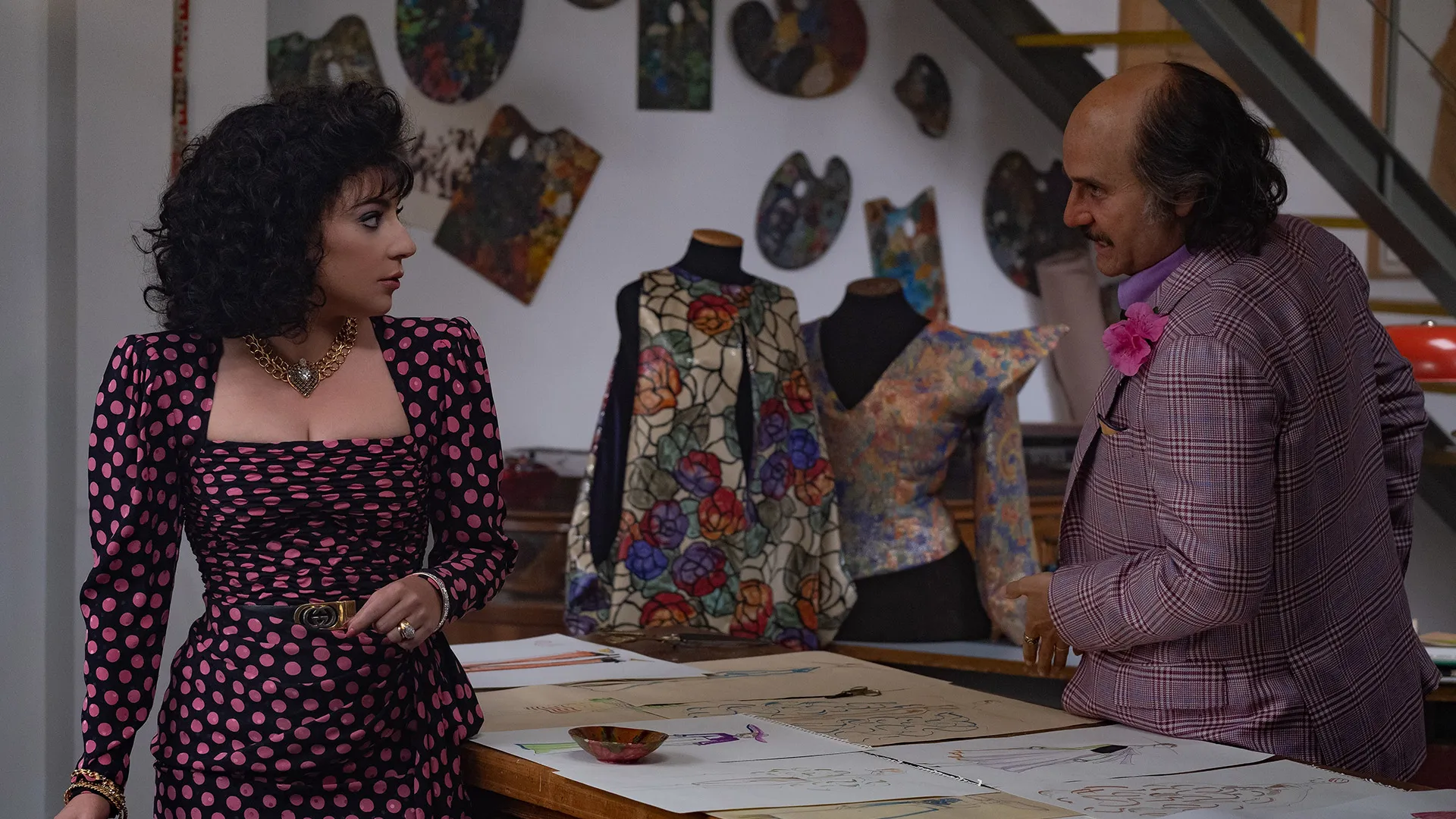
Courtesy Metro Goldwin Mayer
With iconic costumes and a unique soundtrack, Ridley Scott’s House of Gucci takes us back to the fashion industry’s cult years, telling the true story of the crime that split the Gucci dynasty and shocked well-to-do Milan
Family and business are rarely a winning combination, a truth foreshadowed in practically every scene in House of Gucci, the docudrama on how the Gucci family lost control of the brand that still bears its name. Skepticism permeates the entire film from the opening scene, in which an overconfident Patrizia Reggiani strides across the parking lot of her father’s business, pleased with the attention she receives from the other employees.
Played by the stellar Lady Gaga, who steals the scene from the rest of the cast, shortly afterwards, the same Patrizia crashes a trendy Milanese high society party where, to her amazement, she finds herself talking with Maurizio Gucci, the bookish nephew of the magnate who helms the Milanese fashion house. Maurizio (played by Adam Driver, Hollywood’s sexy nerd par excellence) is equally taken by Patrizia’s energy and determination: between stalking him at university and chasing him on his moped, she ends up making him fall in love.
Directed by Ridley Scott, who allowed himself some poetic license in his adaptation of Sara Gay Forden’s text thanks to the clever disclaimer “inspired by a true story,” some critics have called House of Gucci a fashionista version of The Godfather. And what could be more exciting than a combination of glamour, power and family tragedy...
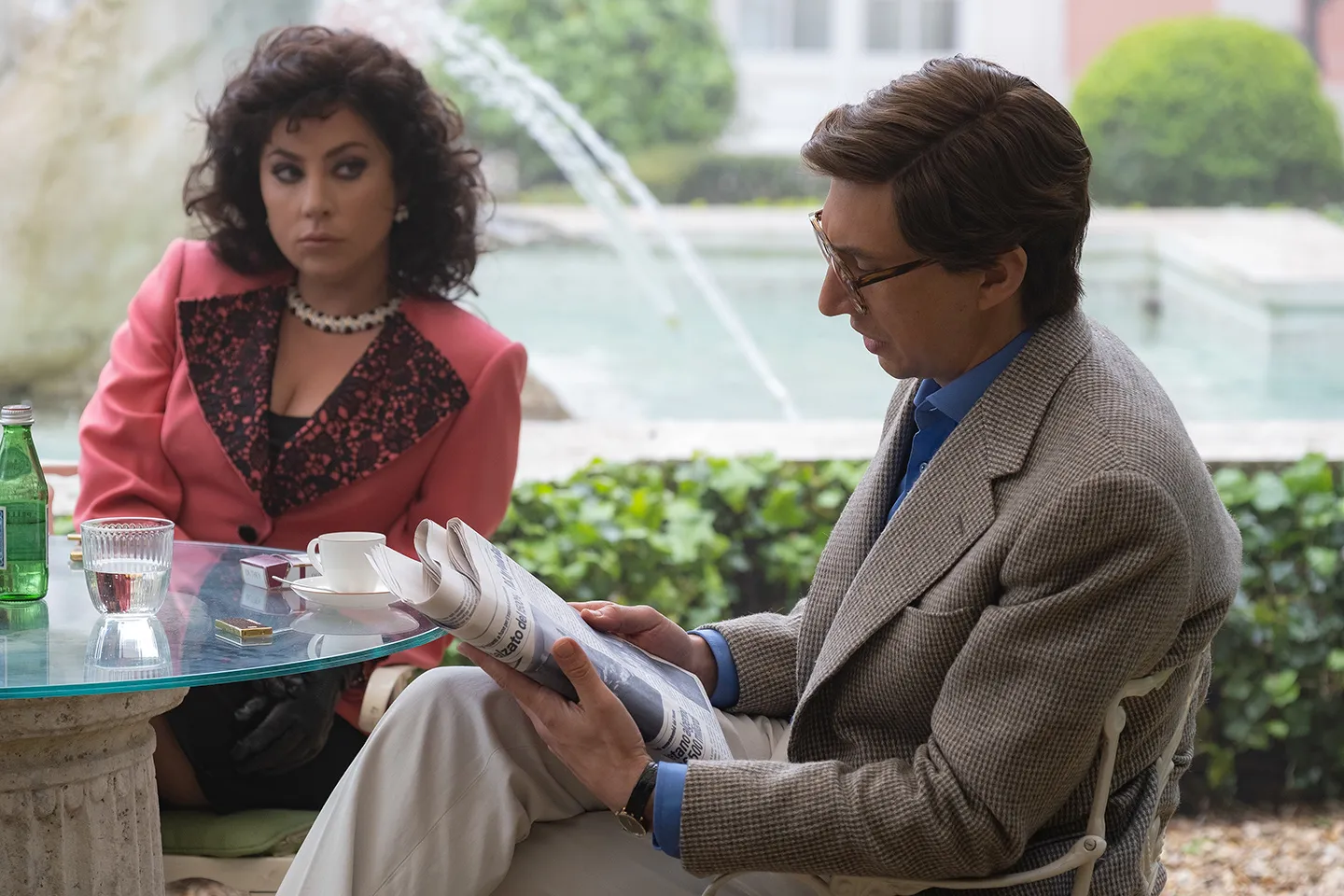
Courtesy Metro Goldwin Mayer
Filled with Italian style popular around the world (even if at times slipping into parody, for example mispronounced Italian words in the original language version), the film retraces the true story of a crime that spelled the end of the Gucci dynasty and shocked well-to-do Milan: Maurizio Gucci’s murder by a hit man his ex-wife Patrizia Reggiani hires.
Adam/Maurizio ends up giving in to his feelings and marrying Gaga/Patrizia, without being aware (or perhaps he’s just heedless) of her social climbing ambitions, veiled – it must be said – by a sincere sweetness. On the other hand, Patrizia makes it clear from the start that marrying Maurizio is, for her, akin to marrying the House of Gucci.
The action unfolds at a challenging time for the brand; while all of Italy’s other brands seem to ride the wave of the garish 1980s, Gucci appears to be mired in a past that no longer excites anyone but the family members, who seem to be the biggest problem. The movie leads us through a crescendo of family backstabbing and betrayal, including an unrecognizable Jared Leto as Paolo Gucci, and an impassioned Al Pacino as Aldo Gucci, until the marriage of Maurizio and Patrizia breaks down, ultimately leading to the family empire’s collapse.
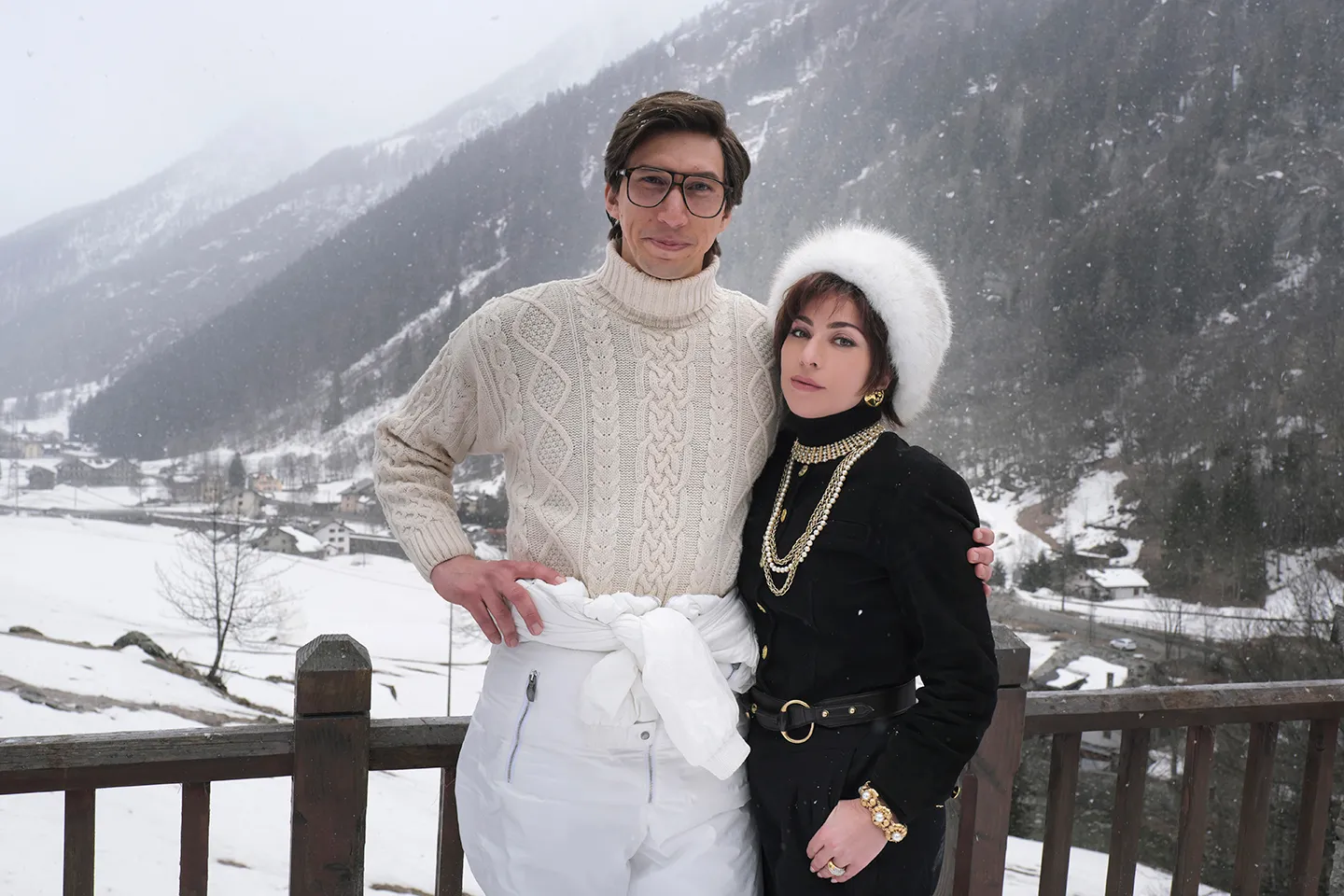
Courtesy Metro Goldwin Mayer
What really makes this feature such a gem are the iconic garments and glimpses of such a lavish lifestyle. In an interview with the New York Times, Production Designer Janty Yates said she created five hundred different costumes. “Lady Gaga did fifty-four days of shooting with fifty-four different looks. We didn’t repeat a single item, not even an earring,” she explains.
In this film about one of the fashion industry’s most stylish families, the garments are clearly narratively significant. Designer Yates says that in Patrizia’s case, the clothes illustrate the character’s evolution, reflecting her opulent and ostentatious new life after marrying into the Gucci family.
From glimpses of Milanese cafés and aperitifs on the shores of Lake Como to New York showrooms and jazz clubs, House of Gucci plunges us into the atmosphere of cult years for the fashion industry. Harry Gregson-Williams’ soundtrack is no less impressive, combining Pino Donaggio with David Bowie, and Bruno Laurie with Black Machine.
Midway through the film, as if to foreshadow the fact that no rebirth is possible without blood, Patrizia Gucci says, “Gucci needs new blood”. Inevitably, the film concludes with the trial of the decade.


 Stories
Stories
